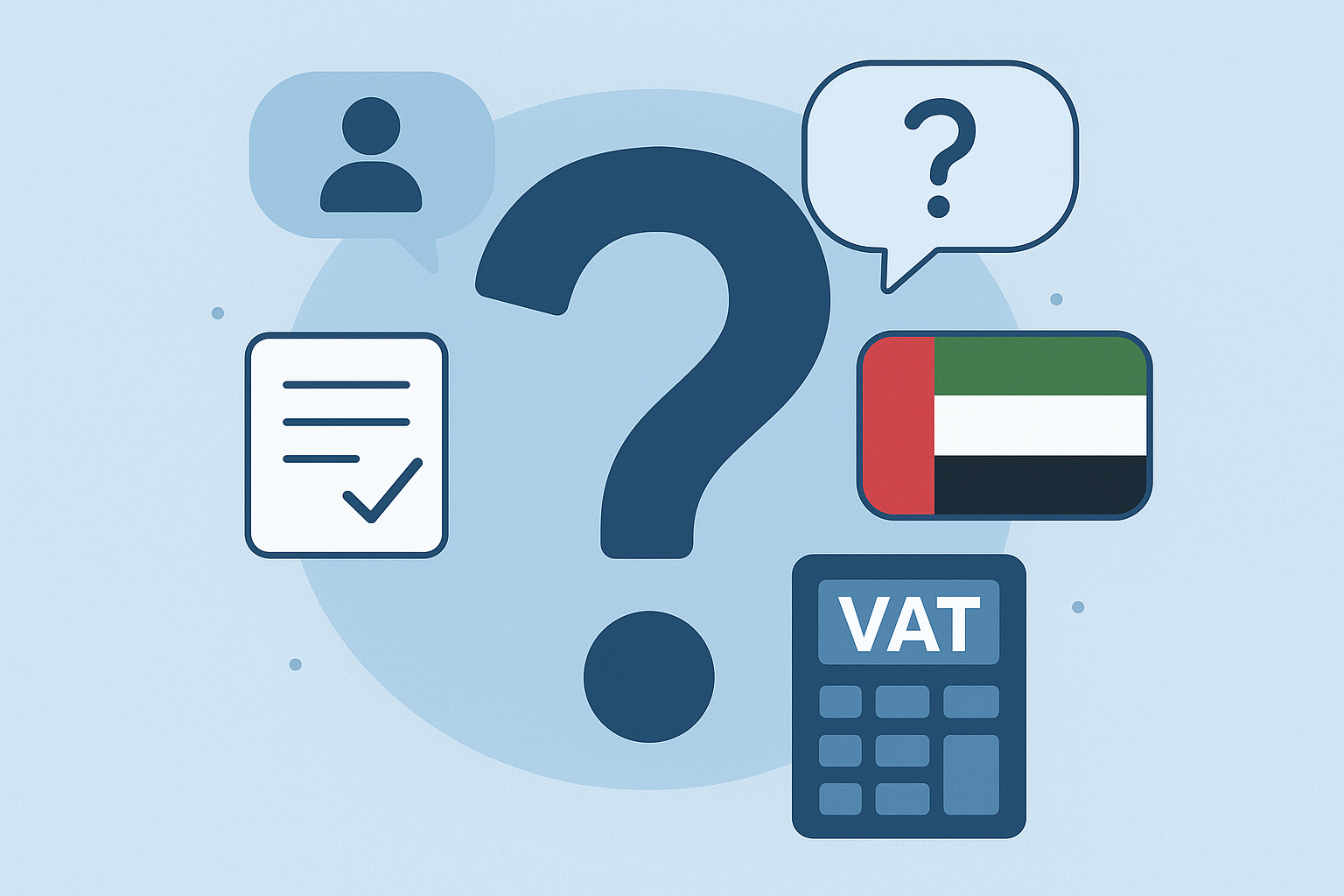Frequently Asked Questions on VAT in UAE
Value Added Tax (VAT) has become an essential part of business operations in the United Arab Emirates. Introduced in 2018, VAT applies to most goods and services at a standard rate of 5%. Understanding how VAT works helps businesses stay compliant and avoid penalties. Here are the most frequently asked questions about VAT in the UAE.
What Is VAT and Why Was It Introduced in the UAE?
VAT is a consumption tax applied to goods and services at each stage of the supply chain. The UAE introduced VAT to diversify its revenue sources beyond oil. The tax supports infrastructure, healthcare, and education while maintaining economic stability. It is collected by businesses on behalf of the Federal Tax Authority (FTA).
Who Needs to Register for VAT in the UAE?
Businesses must register for VAT if their taxable supplies exceed AED 375,000 annually. Voluntary registration is available for companies with taxable supplies or expenses above AED 187,500. Registration ensures businesses can charge VAT on sales and reclaim VAT on expenses.
How to Register for VAT in the UAE?
VAT registration is done online through the FTA portal. Businesses need to provide trade licenses, financial details, and authorized signatory information. Once approved, they receive a Tax Registration Number (TRN), which must appear on all invoices and tax documents.
What Are the VAT Rates in the UAE?
The standard VAT rate is 5%. However, some goods and services are zero-rated or exempt.
- Zero-rated supplies include exports, international transportation, and specific educational and healthcare services.
- Exempt supplies include certain financial services, residential property, and local passenger transport.
Understanding the difference between these categories is vital for accurate VAT filing.
How Does VAT Work for Businesses?
Businesses collect VAT on sales (output tax) and pay VAT on purchases (input tax). The difference between output and input tax determines whether a company owes tax to the FTA or qualifies for a refund. Proper recordkeeping and invoicing are crucial to ensure compliance and smooth audits.
How to File VAT Returns in the UAE?
Registered businesses must file VAT returns quarterly or monthly, depending on their turnover. Returns are submitted through the FTA portal, summarizing total sales, purchases, and VAT due. Payments must be made within 28 days of the tax period’s end to avoid penalties.
What Happens if a Business Fails to Register or File VAT on Time?
Failing to register or file VAT returns can result in significant fines. The FTA imposes penalties for late registration, delayed payments, or incorrect filings. Non-compliant businesses risk financial losses and reputational damage. It’s essential to stay updated on VAT regulations and deadlines.
Can a Business Claim VAT Refunds in the UAE?
Yes, businesses can claim VAT refunds when input tax exceeds output tax. Refund requests are submitted through the FTA portal. Common refund cases include overpayment, export transactions, or input tax related to zero-rated supplies. Maintaining accurate invoices is key to successful refund claims.
Is VAT Applicable to Free Zones in the UAE?
Not all free zones have the same VAT treatment. The UAE designates certain “Designated Zones” where VAT may not apply to specific transactions. Businesses operating within or dealing with these zones must verify whether VAT obligations apply to them.
How Can Decibel HRMS Help Businesses Manage VAT Compliance?
Decibel HRMS UAE simplifies tax management with integrated payroll, accounting, and compliance tools. The platform helps businesses automate VAT calculations, maintain accurate records, and generate compliant reports for FTA submissions. With Decibel HRMS, companies can focus on growth while staying VAT compliant.
Final Thoughts
Understanding VAT in the UAE is essential for every business. From registration to filing and compliance, every step requires accuracy and attention to detail. Partnering with a reliable HRMS like Decibel ensures seamless VAT management, reducing risks and improving operational efficiency.
Stay informed, stay compliant, and keep your business ahead of tax challenges.


